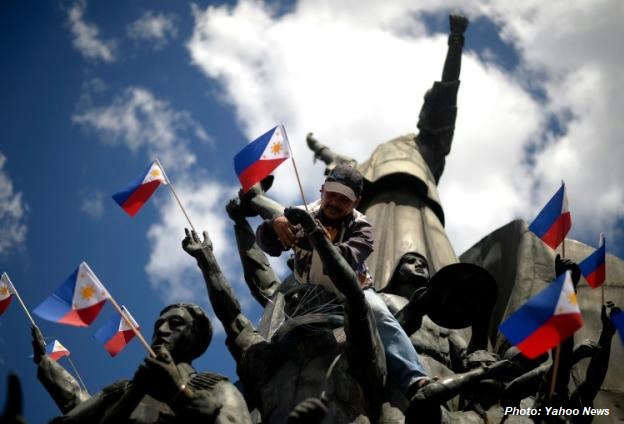
Christopher Maboloc
Democracy has nothing to do with the power of great men. It is about ordinary people whose strength great men use in order to justify their claim to the throne. The idea that some men are born to become leaders, that there are people with extra-ordinary skill or talent to lead an army, human society, or a nation, is nothing more than an addiction to the claim that some of us possess exceptional character traits, that those who are at the top of a hegemonic order have a special moral obligation that is so unique that history loves them.
Those who promote such malicious understanding of history even mention Alexander the Great, Napoleon Bonaparte, or even Peter the Great, for without these movers in history, they say, humanity would not prosper. Before the Enlightenment, man had been characterized during medieval times by his blind obedience to a Divine Providence. The faithful believed among us belies that someone up there is in control of our fate. But with the advent of modernity, we have overcome such blind obedience, for we now control nature through science, which enabled us to unravel her secrets, and with this, comes the rebirth of man.
But wars defined the meaning of history. The great upheavals, they say. Great men are the ones who are destined to rule us, and that they have that gargantuan task that history bequeaths them, and so we, mere mortals, have no other choice except to follow. Indeed, such greatness meant that they are the only type of people that high culture must recognize, whose accomplishments in the many facets of our existence are celebrated and adored by their own kind, while the poor remain simply contented knowing that the sun will rise again, and that each morning will bring a new hope in a life that is simple but decent.
While great men may have accomplished magnificent things by leading their armies in many battles and wars, defeating evil despots who have caused unimaginable misery to millions, the same revolutions have also resulted to endless misery and trepidation. Such revolutions have transformed many societies, but the ones who took over the throne did not do better but perpetrate the sufferings of the powerless. The past oppressors are now dead, but the oppression has remained, but this time, they possessed a different face.
We must come to the judgment as to what truly matters in a democracy. There are no great men unless there are willing victims who are sacrificed for the glory of a few. In fact, the illusion of grandeur has resulted into those types of people who believe that they are on top of a moral high chair. They judge those who are not in their favor as wicked and evil. They often forget that they are a part of an elitist system that has taken advantage of the poor, exploiting them in order to enjoy the comfort of an unequal system that labels those who come from the masses as unworthy of dignity.
Indeed, some people are quick to judge others but are oblivious to their own hypocrisy. They need to ask if they are innocent to whatever ails human society. They must be reminded that an unjust system once favored them, and so they dictated what was to become of our society. But they failed. They are now confined into oblivion and what they are doing is actually use the poor to resurrect their old political agenda, all under the guise of a strategy that has faltered, not because it was not the right thing to do, but because of a lack of authenticity.
You cannot build a castle out of sand. No one has a singular claim to the meaning of justice. The Ilustrado class in Philippine society and history have failed the Filipino people. It is high time that we, ordinary men and women, realize that we are the real movers of history, not the elite who parade their sense of pride under the guise of protecting the innocent when it is the elites are the ones to blame for all the tragedy that has befallen the lives of millions. (Ryan Maboloc)


